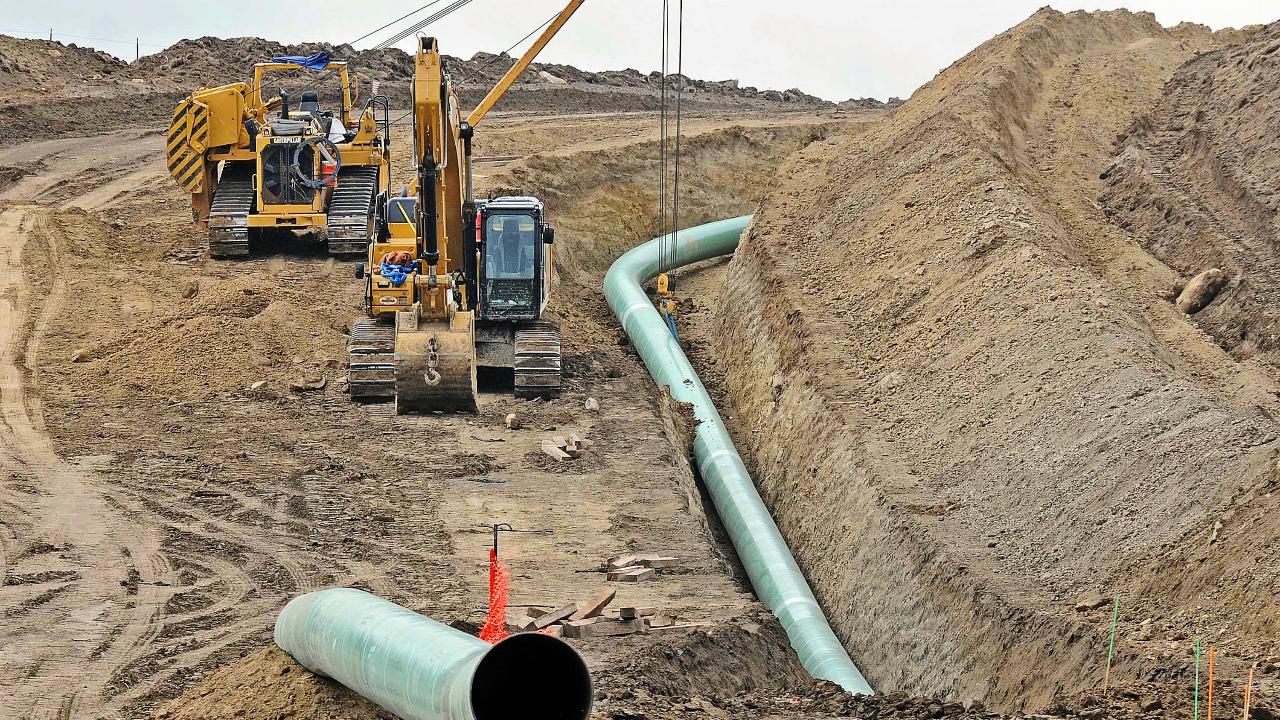Politicians are blocking America's offshore energy boom
Up and down the East Coast, state lawmakers are fighting the Trump administration's efforts to allow natural gas and oil development in the Atlantic. These politicians recently adopted a novel tactic -- they're blocking construction of onshore pipelines, terminals and other energy infrastructure that would be needed to process offshore natural gas and oil.
In April, the South Carolina Senate advanced a measure that would prohibit the use of state funds for any infrastructure projects related to offshore development. Virginia lawmakers considered similar measures earlier this year.
This tactic, though clever, ultimately has potential to harm the coastal communities that lawmakers say they want to protect. Blocking energy infrastructure projects deprives workers of good jobs and weakens our energy and national security.
Energy infrastructure, such as pipelines, are also the safest, most reliable way to get energy from point A to point B. We are talking about the energy that communities, families and businesses need to live their every-day lives: driving to work, going to school, using their iPhones and cooking their dinner.
Immense energy wealth is expected to lie off America's coasts. The Outer Continental Shelf (OCS) -- the submerged federal territory beneath the Arctic, Atlantic and Pacific Oceans and the Gulf of Mexico – could contain as much as 90 billion barrels of oil and 328 trillion cubic feet of natural gas.
730K jobs, $120B in tax revenues
Tapping these energy deposits could support 730,000 American jobs and generate nearly $120 billion in cumulative tax revenues for the federal government over the next 20 years. By opposing the infrastructure needed for offshore development, state lawmakers are kneecapping their local economies.
In South Carolina, offshore development could raise state revenue by $3.8 billion, attract more than $2 billion in private investment, and generate nearly 34,000 jobs. In Virginia, it could boost state revenue by $2 billion and create nearly 25,000 jobs. And it’s not just our coastal states – offshore development could help economies across the nation.
Thanks to advances in exploration and development technology, energy companies have dramatically increased natural gas and oil production in recent years, while reducing their environmental footprint. Last year, we became the world's top oil producer for the first time in more than four decades, surpassing Russia and Saudi Arabia, while reducing U.S. CO2 emissions from energy sources to twenty-five year lows.
The failure to develop offshore resources and invest in infrastructure doesn't just weaken the U.S. energy revolution -- it also compromises our access to reliable and affordable energy, national security and also slows down environmental progress. It makes no sense to rely on nations that don't share our democratic principles like Vladimir Putin's Russia or Nicolas Maduro's Venezuela for our energy needs -- especially when we have such immense natural gas and oil deposits available offshore.
CLICK HERE TO GET THE FOX BUSINESS APP
America has been blessed with ample energy resources. But that means nothing if we don't develop our offshore resources and build the energy infrastructure needed to harness it. This will take a lot of courageous political will, but needs to be done for our country's future.
Jim Nicholson served as Secretary of the Department of Veterans Affairs under the George W. Bush Administration, as well as U.S. Ambassador to the Holy See.
